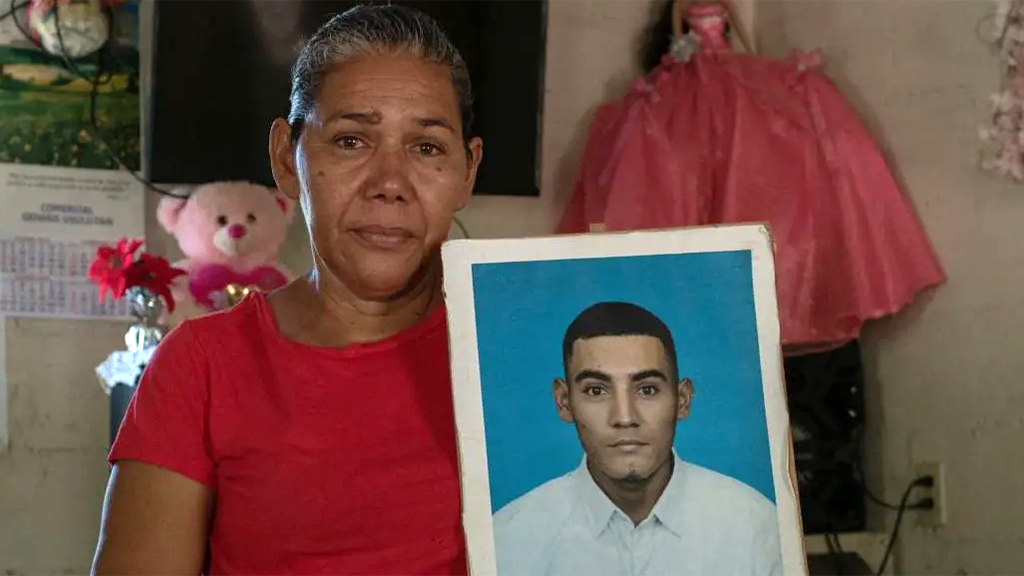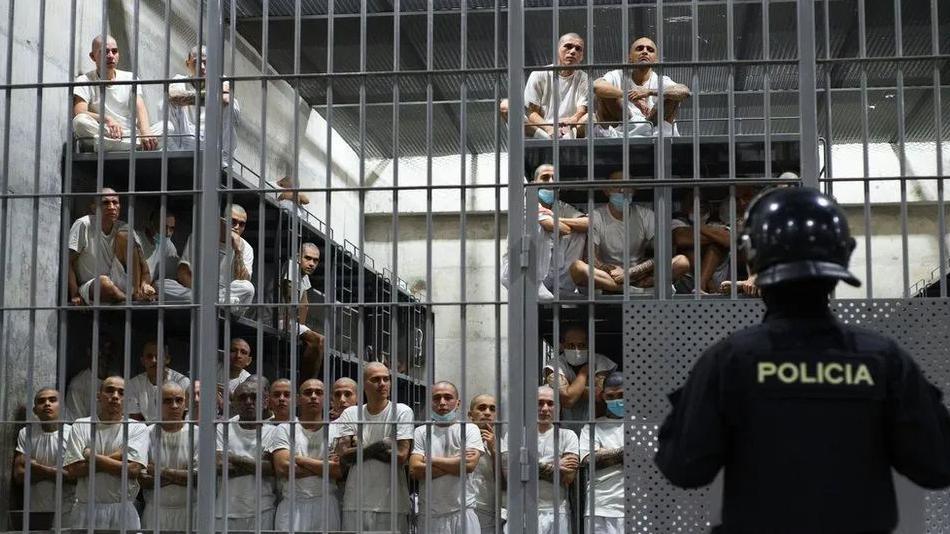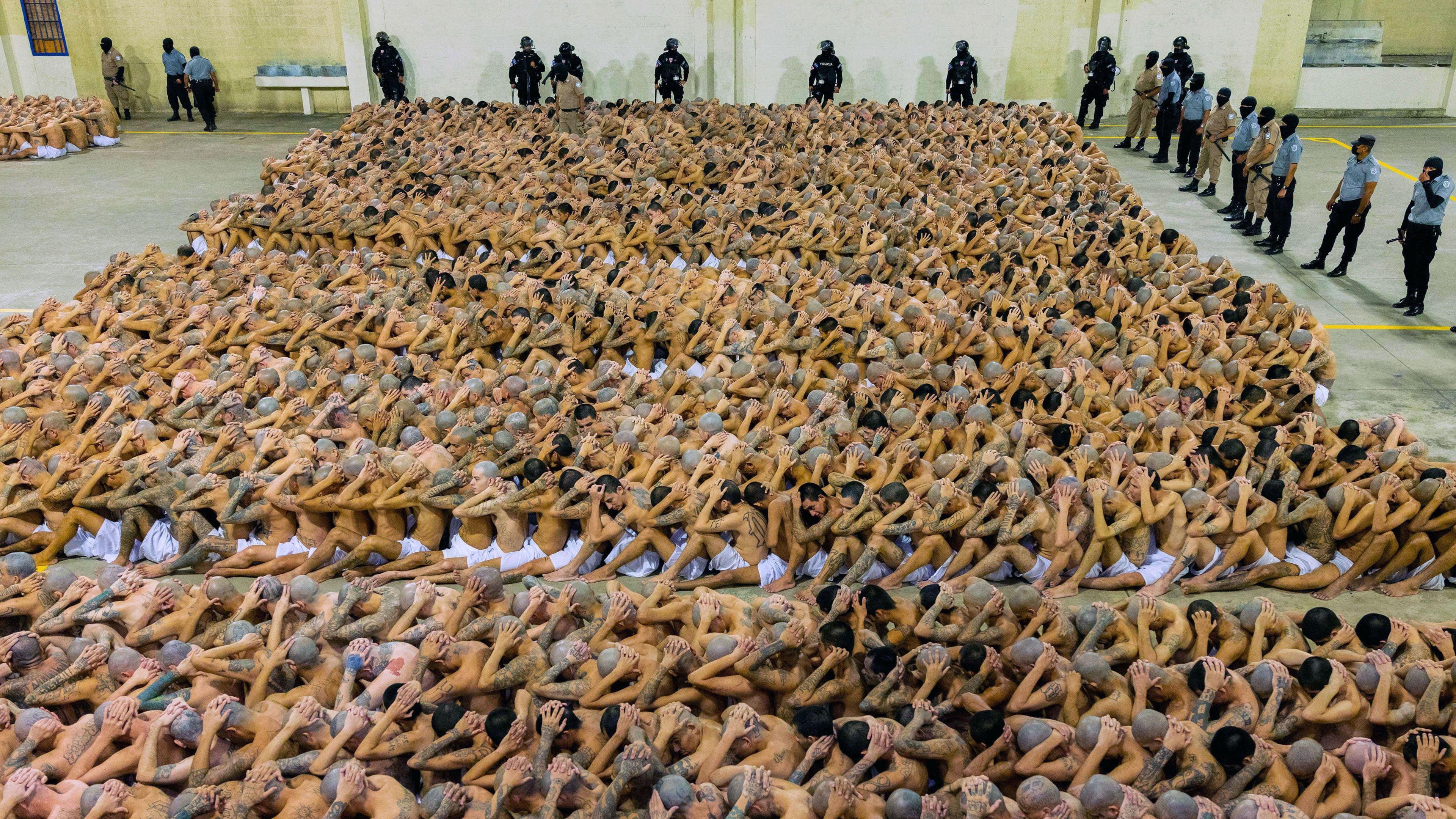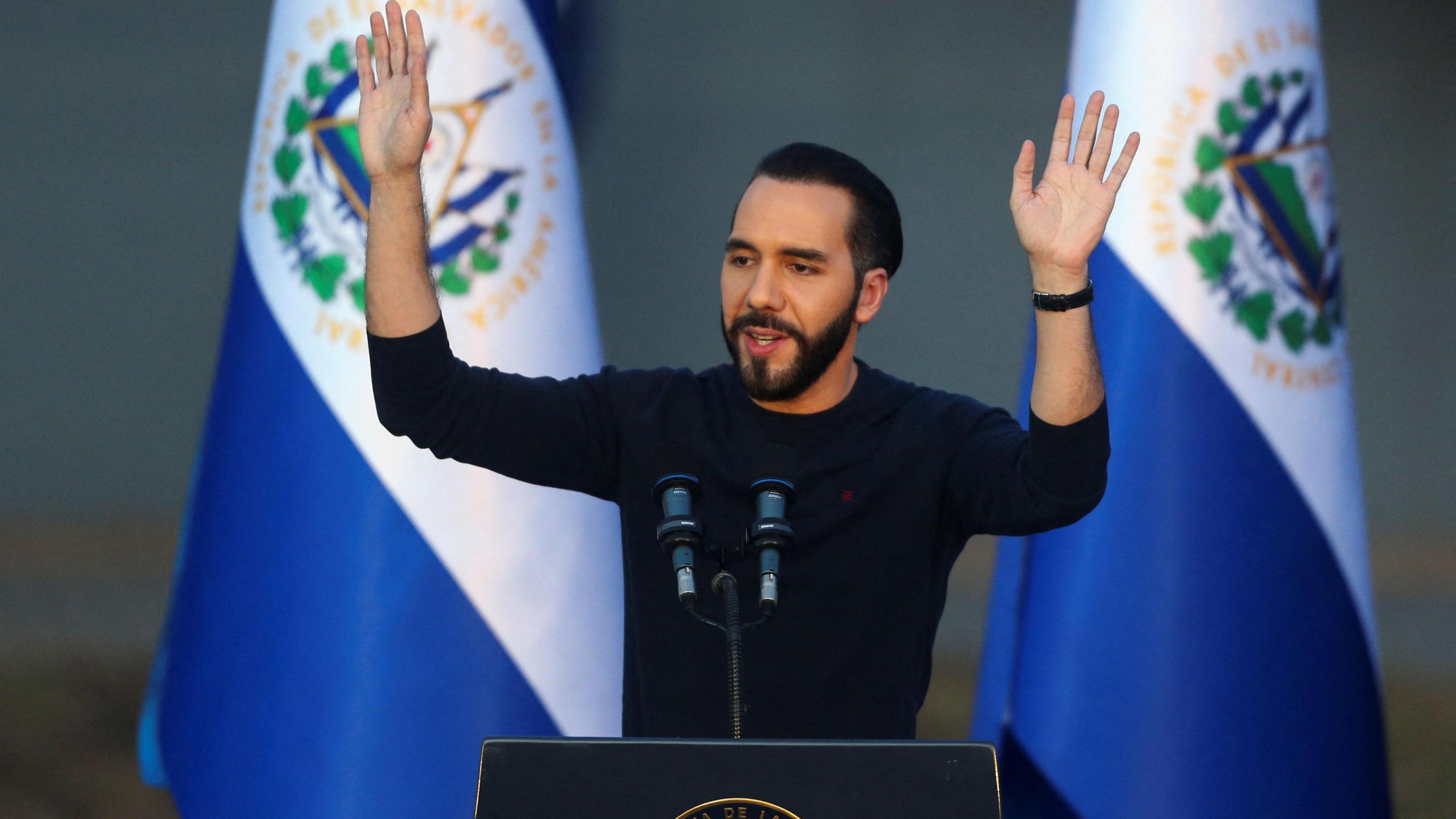Stuck in one of the world's toughest jails - against judges' orders

José Duval Mata's mother, Marcela Alvarado, has not heard from him since he was detained more than two years ago
- Published
If he is still alive, José Duval Mata is trapped in a living nightmare.
For more than two years, the 26-year-old tractor driver has been in prison in El Salvador, accused of “gang association”, even though the country’s legal system has twice ordered his immediate release.
Despite two judges’ clearly worded decisions in his favour, Mr Mata still languishes inside one of the toughest prisons in the world: El Salvador’s notorious Cecot, a super-max facility for the “confinement of terrorists”.
The BBC has repeatedly brought the case to the attention of the Salvadorean government – including directly to the public prosecutor’s office, the security ministry, the vice-president, and President Nayib Bukele himself earlier this year.
Despite several assurances the authorities would investigate, no action has been taken to date.
It is a tale of Kafkaesque proportions.
In April 2022, Mr Mata was on his way home in the dusty rural community of La Noria when he was stopped by troops who had entered his village as part of President Bukele’s nationwide crackdown on the country’s powerful street gangs.

Each cell in El Salvador's notorious Cecot prison can hold more than 150 inmates
With a raft of constitutional rights suspended under an emergency decree called the State of Exception, police and troops can detain anyone suspected of gang affiliation without due legal process.
Around 70,000 people have been arrested in two years including some 3,000 children, many with no discernible link to gang activity, says the New York-based organisation Human Rights Watch.
Despite Mr Mata’s protestations that he had never been in or worked for a gang, the troops detained him for “illicit association” – a catch-all term used under the State of Exception to round people up.
His mother, Marcela Alvarado, hasn’t seen or heard from her son since that day.
“The police told me I needed to bring evidence to prove his innocence, so I gathered up his high school diploma, the deeds to his land, his repayment receipts on his bank loan, a declaration from his employer as to his good character,” she explains, showing the BBC the documents, which experts say almost no Salvadorean gang member would possess.
Her efforts were in vain.
Face to face with inmates in El Salvador's mega-jail
- Published15 February 2024
Trafficked war babies of El Salvador search for their long-lost families
- Published13 April 2024
The abandoned gang houses being returned to locals
- Published29 May 2023
José Duval was tried alongside more than 350 other inmates in a mass trial which lasted just minutes. He was sentenced to an initial six months, which has since been extended indefinitely.
Marcela still cries at the memory. But things were about to get far worse.
José Duval was briefly freed after a judge ordered his immediate release in September 2022.
However, he was then rearrested at the doors of the prison – on the same charges – as he waited for his family to come and pick him up.
Rearrests of prisoners at the prison gates “are arbitrary actions… illegal detentions and cases of double jeopardy,” says Noah Bullock, the executive director of El Salvador’s leading human rights NGO, Cristosal.
Nevertheless, he says, the practice has been widespread under the State of Exception.
In June 2023, a second judge confirmed the earlier decision to free Mr Mata. Yet, more than a year later, he remains behind bars and Marcela’s increasingly desperate requests for information have fallen on deaf ears.

Marcela Alvarado says she provided the authorities with documents to prove her son's innocence
José Duval’s family has now lodged his case with the Inter-American Commission on Human Rights.
A source inside the Salvadorean public prosecutor’s office has told the BBC they could see “no legal justification or any clear explanation” for the young man’s continued detention.
Throughout the ordeal, Marcela faithfully took a food parcel each week to the Izalco prison where her son was housed – a plastic bag filled with “cornflakes, oatmeal, bread and cookies”, she said, to help sustain José Duval beyond his meagre prison rations.
When she delivered a food bag in June of last year, guards told her that he had been transferred from the penitentiary some weeks earlier.
Her worst fears had been realised.
José Duval was now inside the Cecot – the Centre for the Confinement of Terrorism – a maximum-security jail which is the cornerstone of Mr Bukele’s anti-gang policy.
Mr Bukele’s supporters hail the facility as evidence of his iron fist on gang crime.
Its critics consider it a black hole of human rights and one of the harshest prisons in the world.
President Bukele has often said the inmates will not see “a ray of sunshine” and receive the most basic rations of cold rice and tortillas.
Images of shaven-headed and heavily tattooed inmates being transferred into the facility were widely published by the Bukele government.

El Salvador's government has published photos - like this one from 2023 - to publicise its crackdown on gangs
Mr Bukele has repeatedly defended the State of Exception and the Cecot for changing the face of security in El Salvador.
Numerous "no-go" areas and gang-controlled neighbourhoods are indeed back under the control of the security forces, and entire communities say they no longer live in fear.
As such, the crackdown is hugely popular. Millions in El Salvador are eternally grateful to their young, media-savvy leader for tackling the gang problem with swift and ruthless force.
In February, President Nayib Bukele was re-elected in a landslide, securing around 90% of the vote.
At a news conference, I asked him if in his second term he would focus on freeing those who had been unjustly detained.
President Bukele launched into a long answer attacking his critics, particularly those from abroad, arguing that there had been high-profile miscarriages of justice in the United Kingdom.
His security forces had only made, he said, “a couple of mistakes” and some 7,000 people had already been released.
The crackdown had restored calm to El Salvador’s streets and that was the most important thing, he insisted.

President Bukele's popularity has surged following the mass arrests of alleged gang members
I told him specifics about José Duval Mata’s case and, following the news conference, his team asked me for copies of the judges’ release orders. A few days later, a member of his inner circle requested the information a second time, this time in digital format, which I again provided to them.
Over the following weeks, the BBC repeatedly chased up the Bukele administration and I have spoken directly to the vice-president, Félix Ulloa, on several occasions about the case.
Over a year ago, he told the BBC that Mr Mata was just days away from being set free.
Mr Ulloa said he hoped that, once out of prison, the media would portray José Duval Mata as an “emblematic case of due process”.
In fact, at that point, he was being transferred to the Cecot without his family’s knowledge.
Earlier this year, after months of requests, the BBC did gain access to the Cecot but we were not permitted to speak to the inmates or ask officials about specific cases.
Meanwhile, Marcela has had no proof of life or formal confirmation of her son’s welfare in over two years. Unsurprisingly, it has often crossed her mind that José Duval might have died in prison.
“I used to think about it non-stop”, she tells me from her tiny patch of land in La Noria. “I was obsessed with the idea, I felt completely desperate. All I would do is cry.”
Now, she says, she’s just clinging to the hope that her son is still alive and will eventually be released.
“I’m placing my trust in God. It’s all I can do.”